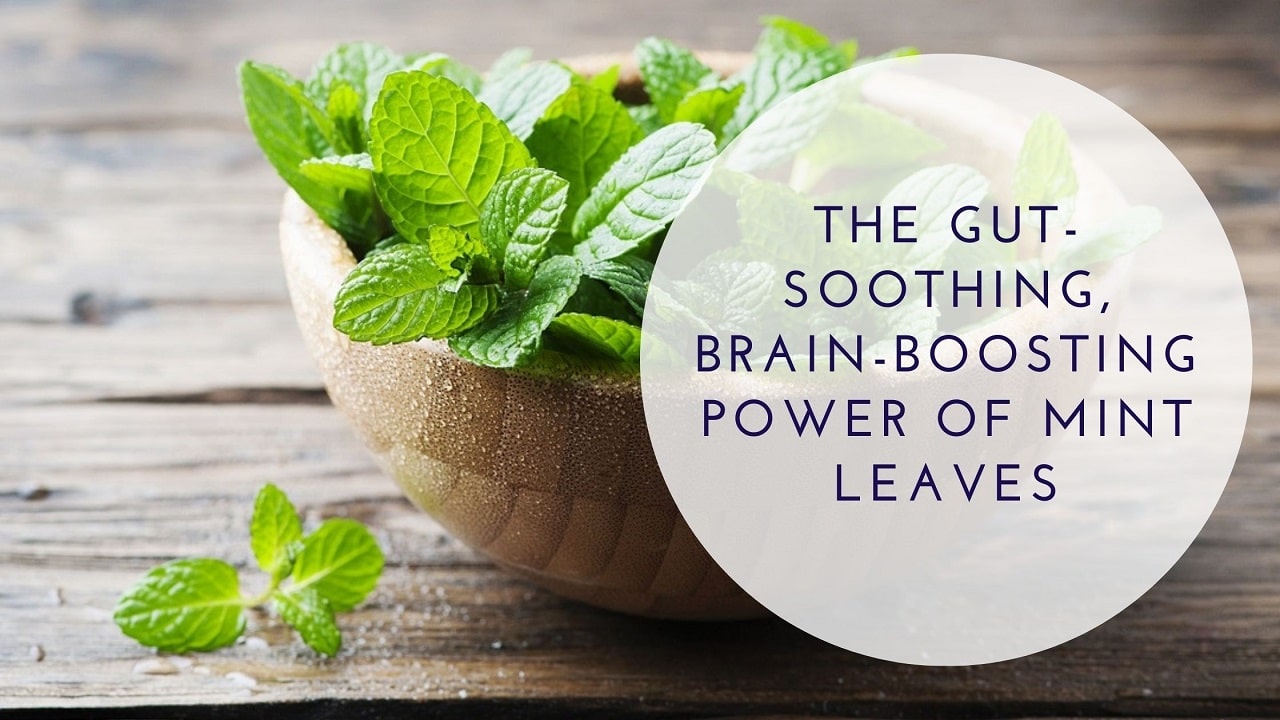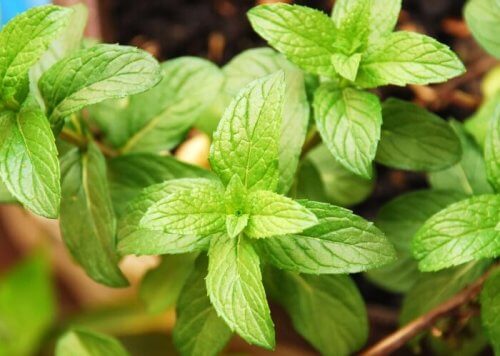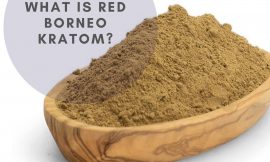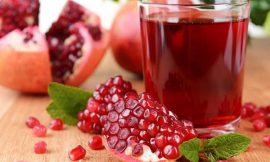
Sadly, mint leaves are often considered little more than an ingredient used to spice up drinks or settle an upset tummy. In reality, though, the potent little mint supplement provides an impressive series of important vitamins, vitamins, and health benefits which make it a true powerhouse of nutrition. That’s why mint earns an area as one of the top healing seasonings.
In reality, the potential mint leaves benefits to extend way further than freshening up your breath of air. Research shows that mint leaves can even bump up brain function, assist in intestinal health, and help balance hormonal levels to keep your body at it is best.
So how can mint leaves enhance your health, and how is it possible to incorporate them into your normal daily diet? Below is what you need to know.
What Are Mint Leaves?
Mint leaves can refer to any herb in the Mentha genus, nevertheless, the term is most often used to associate with peppermint and spearmint, the two most common types of mint vegetables. Spearmint is a flower with a sweet taste that works well in many recipes while peppermint has a higher attentiveness of menthol, which documents most of the medicinal uses of mint leaves.
Mint leaves are functional and can be used to produce a soothing cup of tea or included in everything from salads to puddings. Plus, studies show that these different variations of the mint herb could have some beneficial effects on health, from boosting brain function to keeping hormone levels under control, offering you all the more reason to consider adding this powerful herb into your regular rotation.

- Great things about Mint Leaves
- Improve Our digestive health
- May Reduce Cold Symptoms
- Help Dental Hygiene
- Boost Brain Function
- Soothe Breastfeeding Pain
- Decrease PCOS Symptoms
- Decrease Stomach upset
1. Improve Digestive Wellbeing
Many people grab mints at the first indication of tummy troubles, and for a valid reason. Mint is well-known due to its stomach-soothing properties thanks to the occurrence of a compound in peppermint oil called menthol, which helps relax the muscles in the digestive: tract to provide alleviation.
Studies show that mint may be especially beneficial for folks with irritable colon syndrome (IBS), a condition that causes IBS symptoms like belly pain, costiveness, diarrhea, nausea, bloating, and cramps. One double-blind, placebo-controlled study out of Italy gave people with IBS peppermint olive oil capsules for four several weeks and found that symptoms were slashed by seventy-five percent.
2. May Reduce Cold Symptoms
Flip over just about any otc cold or flu treatments and you’ll likely place “menthol” on the set of ingredients. Menthol is one of the primary ingredients in peppermint oil, and although there is inconsistent evidence about just how effective menthol may be at relieving congestion, several studies have found that it may help improve airflow to reduce frosty symptoms.
3. Help Dental Hygiene
Popping a few mints or a keep of mint-flavored gum is a well-known natural cure to freshen up bad breath, but are you aware that it could also help promote oral hygiene as well?
One of the key benefits associated with peppermint tea is it is powerful antimicrobial properties, which can help kill off bacteria to optimize common hygiene. Brew up a cup or two of peppermint tea using mint leaves, and pair it with proper oral cleanliness practices to keep your mouth healthy and fresh.
4. Boost Brain Function
Interestingly enough, some research shows that your mere smell of mint could be enough to increase brain power and improve cognitive function. One research published in the Worldwide Journal of Neuroscience, for example, showed that the aroma of peppermint was able to enhance storage and increase alertness. Likewise, another study published in the North American Record of Psychology also revealed that peppermint scent was effective at reducing low energy and anxiety while bettering alertness, thanks to their ability to stimulate the central nervous system.
5. Soothe Breastfeeding Pain
Broke, sore, and painful hard nips are some of the most frequent side effects of breastfeeding a baby, most of them can be difficult to effectively soothe and treat. Some research shows that mint leaves may help relieve pain caused by breastfeeding by creating a decrease in these serious symptoms and side results when applied topically.
A study conducted by the Alzahra Teaching Hospital in Iran showed that making use of peppermint gel was significantly more effective than lanolin at protecting against nipple breaks in nursing mothers. One more study published in the International Breastfeeding Journal found that daily use of peppermint water could prevent nipple cracks, noting that ladies who used it regularly also reported less pain.
6. Reduce PCOS Symptoms
Some studies have found that mint tea benefits polycystic ovary syndrome, a condition in women that is seen as excess levels of male hormones. This is because it has anti-androgen effects, helping to reduce testosterone levels to keep hormone levels in balance.
One particular 2010 study published in Phytotherapy Research showed that drinking spearmint herbal tea was able to significantly decrease testosterone levels and improve subjective assessments of hirsutism, or irregular locks growth, in women. A great animal study also confirmed that drinking peppermint tea led to a lowering in testosterone in rodents compared to a control group, suggesting which it could be beneficial for people that have PCOS.
7. Decrease Stomach upset
Also known as fatigue, indigestion is described as an impaired digestive function, resulting in recurrent symptoms like heartburn, nausea, belching, and belly pain. Analyses have found that peppermint oil speeds up the emptying of the abdomen, which could protect against indigestion to avoid symptoms. Working with peppermint oil as a treatment for indigestion has also been shown to be effective, in particular, when together with other ingredients like caraway oil.
Top Pudina Tea Benefits
Several herbal teas are used in traditional medicine all over the world to relieve nausea, indigestion, constipation, and headaches and to enable a night of restful sleep. Peppermint and spearmint are mint varieties native to Europe and Asia, which are highly appreciated for their special medicinal properties and cooling properties. Sources: 10
One of the best-known benefits of peppermint tea is the relief of stomach problems. It has been known for generations that drinking mint tea helps digestion, and one of the most popular remedies for stomach upset is a freshly brewed cup of peppermint tea. Treatment for irritable bowel syndrome can involve dietary changes and medication, but research has shown that taking peppermint oil as a herbal remedy can also be helpful. Sources: 4, 10
Several studies have shown that taking peppermint oil capsules can improve symptoms in IBS patients. Further research is needed to confirm the benefits of mint products in managing IBS. However, research has shown that IBS symptoms can be alleviated by using oil capsules or raw mint leaves.Sources: 4, 13
Spice up your water by adding mint leaves and cucumbers for a refreshing treat. Pour hot water over the mint leaves and leave to infuse for 5-6 minutes for homemade mint tea.Sources: 13
To explain the general health benefits of mint tea, this article will focus on peppermint tea. Peppermint tea has a touch of green tea, fruity and vanilla flavors depending on the infusion mixture. Sources: 11
The amazing health benefits of mint include better digestion, weight loss, relief from nausea, depression, fatigue, and headaches. Mint is also helpful in treating asthma, memory loss, and skin problems. Most mint teas offer some general health benefits, and mint infusions offer varying degrees of staple foods. Sources: 0, 11
Mint is a popular herb and is used both fresh and dried in tea and spices in the kitchen. It is believed to be a good relaxant and helps ease congestion. Different types of mint are used to prepare different oils, such as peppermint oil and peppermint essential oil, which have many uses and benefits.Sources: 0, 1
Different mint teas can help to improve digestion, fight colds and coughs, and reduce headaches and bad breath. It’s never nice to have a sore throat and when I have a cold the combination of mint tea with lemon and honey is my favorite tea. Spiced mint is included in many recipes as the main course to help with digestion. Sources: 1
Mint is an effective remedy to relieve the symptoms of irritable bowel syndrome (IBS). The aroma of mint helps to activate the salivary glands in the mouth, which are the glands that secrete digestive enzymes that facilitate digestion.Sources: 0
Mint oil has antiseptic and antibacterial properties that can alleviate indigestion and stomach infections. According to the book Healing Food by DK Publishing, menthol, an active oil of mint, has anti-inflammatory, antibacterial properties and can help relieve restlessness and stomach discomfort. A 2007 study published in the International Breastfeeding Journal showed that mint oil can help alleviate nipple cracks associated with breastfeeding.Sources: 0, 2, 7
Mint has been associated with a calming effect for asthmatics. In addition to the respiratory tract, mint has anti-inflammatory properties and relieves irritation caused by chronic coughing. Mint-based basic mint oil rubbed on the forehead and nose is an effective remedy for headaches and nausea.Sources: 7
In addition, menthol and mint leaves improve the perception of airflow in the nasal cavity, making it easier for you to breathe. At the same time, they work to lower the temperature, which can lower the fever.Sources: 6
Mint tea’s fresh, cool aroma is great natural aromatherapy to relieve stress and to increase general well-being and tranquility. Mint tea contains natural soothing properties that help you relax after a long day. Sources: 6
Mint tea is an herbal tea valued for its fresh aroma and soothing taste all over the world. Other types of mint tea such as thin mint tea have also become popular because of its benefits. The benefits of mint teas are not only promoted because they are supported by scientific studies.Sources: 9
Lemon mint tea is an excellent herbal tea that detoxifies, rejuvenates, and soothes the body. It is a decaf tea with a strong aroma and flavor of mint due to its menthol content. Sources: 3
Mint leaves are known as pudina mint, derived from the Greek word mintha, a genus of plants in the Lamiaceae family. Mint leaves and leaves are known for their fragrance and cool, refreshing taste. As a medicinal herb, mint leaves (Pudina) have been in remarkable use for years. Sources: 3, 8
Mint leaves contain a lot of salicylic acids, which is known to fight acne and blemishes. Mint leaves are rich in phosphorus, calcium, and vitamins C, D, and E, which improve the body’s immune system. They are also anti-inflammatory, which helps reduce inflammation in the stomach. Sources: 12
Mint contains phytonutrients with antioxidant properties that reduce the damage from oxidative stress unlike other plant foods such as carrots, fruits, nuts, seeds, beans, and 100% whole grains. Mint leaves contain a powerful antioxidant and anti-inflammatory ingredient called rosmarinic acid. Sources: 5, 12
Mint is a soothing herb that people have been using for millennia to relieve stomach upset and indigestion. Mint tea is a delicious and refreshing way to stay healthy and can help strengthen your immune system, improve digestion and relieve pain.Sources: 11, 13
Native to Europe, peppermint tea has an essential oil that strengthens the menthol flavor that makes mint tea one of the most popular. Peppermint tea can be bought at your local grocery store or tea maker, or you can grow it yourself in the garden.Sources: 11
Mint tea is a delicious and relaxing drink with numerous health benefits. The menthol in mint tea stimulates the secretion of gastric juices, which break down food and speeds up digestion. The cooling effect of menthol helps to alleviate stomach upset, improves blood circulation, and alleviates inflammation caused by stomach pain. Sources: 6
In summary, mint (chewing gum) can mask the smell for a few hours but is not an optimal long-term solution for bad breath. On the other hand, drinking peppermint tea or chewing fresh leaves can mask bad breath and kill bacteria in the test tube and studies have shown the antibacterial effect of peppermint oil (21). Peppermint tea and chewing mint leaves can also be useful to reduce the bacteria that cause bad breath.
Cited Sources
- https://www.organicfacts.net/health-benefits/herbs-and-spices/health-benefits-of-mint.html0
- https://gabriela.green/the-11-biggest-health-benefits-of-drinking-mint-tea/1
- https://pharmeasy.in/blog/benefits-of-mint-leaves/2
- https://www.vahrehvah.com/indianfood/health-benefits-from-lemon-mint-tea3
- https://www.healthline.com/nutrition/mint-benefits4
- https://www.goodhousekeeping.com/health/diet-nutrition/a47308/health-benefits-mint/5
- https://jajabakes.com/fresh-mint-tea/6
- https://food.ndtv.com/food-drinks/mint-benefits-10-incredible-health-benefits-of-mint-or-pudina-you-must-know-18427207
- https://timesofindia.indiatimes.com/life-style/food-news/10-health-benefits-of-mint-leaves/photostory/81243843.cms8
- https://www.verywellfit.com/mint-tea-benefits-and-side-effects-41635009
- https://dragonflytea.com/blogs/our-blog/mint-tea-benefits10
- https://senchateabar.com/blogs/blog/benefits-of-mint-tea11
- https://www.healthshots.com/healthy-eating/superfoods/8-powerful-benefits-of-mint-leaves-you-cant-ignore/12
- https://www.medicalnewstoday.com/articles/27594413




